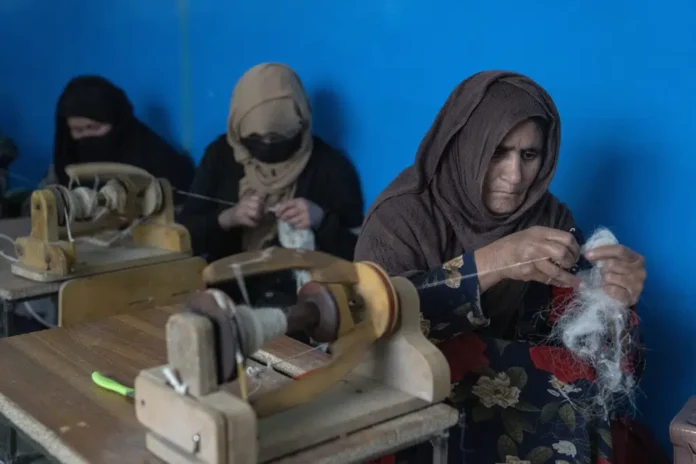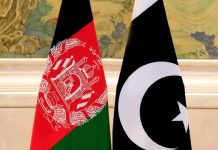ISLAMABAD (AP) — The Taliban government is trying to take charge of more Afghan embassies abroad, a spokesman said Saturday, amid their continued international isolation because of restrictions on women and girls.
The Taliban initially promised a more moderate rule after their takeover in August 2021, but instead imposed sweeping bans and other measures curtailing basic freedoms.
The U.N. and foreign governments have fiercely condemned the restrictions on female education and employment, and the international community remains wary of officially recognizing the Taliban, although some countries retain an active diplomatic mission in Afghanistan, including Pakistan, Turkey, Qatar, and China.
“The Islamic Emirate has sent diplomats to at least 14 countries and efforts are underway to take charge of other diplomatic missions abroad,” the government’s main spokesman Zabihullah Mujahid said in a video. “Diplomats of the former government are continuing their activities in coordination with the Foreign Ministry.”
The administration has sent its diplomats to Iran, Turkey, Pakistan, Russia, China, Kazakhstan and other Arab and African countries, according to Mujahid. He gave no further details.
In February, authorities handed over control of the Afghan embassy in Tehran to a special envoy of the Taliban government. It was previously staffed by envoys from the former US-backed government of Afghanistan.
Deputy government spokesman Bilal Karimi was initially unable to provide figures on how many Afghan missions are operating abroad or how many the regime has taken over after August 2021.
“There are many embassies abroad,” he said. The Islamic Emirate wants to maintain diplomatic relations and promote good exchanges with all countries,” he told the Associated Press. I hope that embassies will be opened in other countries.”
A State Department spokesman did not respond to his AP’s questions about the embassy.
In January, top UN official Amina Mohammed said the Taliban wanted international recognition and Afghanistan’s UN seat, now held by Ashraf Ghani’s former government.
“Recognition is the tool we have and what we should keep,” she said after meeting with Taliban ministers in Kabul and Kandahar to try to reverse the crackdown on women and girls.
They banned girls from attending secondary schools, high schools, and colleges, and banned women from working in most jobs, including non-governmental organizations. Women were also ordered to wear head-to-toe clothing in public and were barred from entering parks and gyms.
Last week, schools reopened without her teenage girl for the new school year, more than 18 months after her secondary education ban took effect.
Universities reopened after her winter break in early March without female students, and the ban on NGO activities is still in effect, although some aid agencies have partially reopened on special exceptions.
Jan Egeland, executive director of the Norwegian Refugee Council, said on Friday he said more than three months had passed since Afghanistan’s “unbearable ban” on female aid workers was implemented. “We have made some progress locally to allow women to return to work, but we are still awaiting national approval.”
Saturday, February 21, 2026
More
© London Post, All Rights Reserved by Independent Media Group UK Limited.






